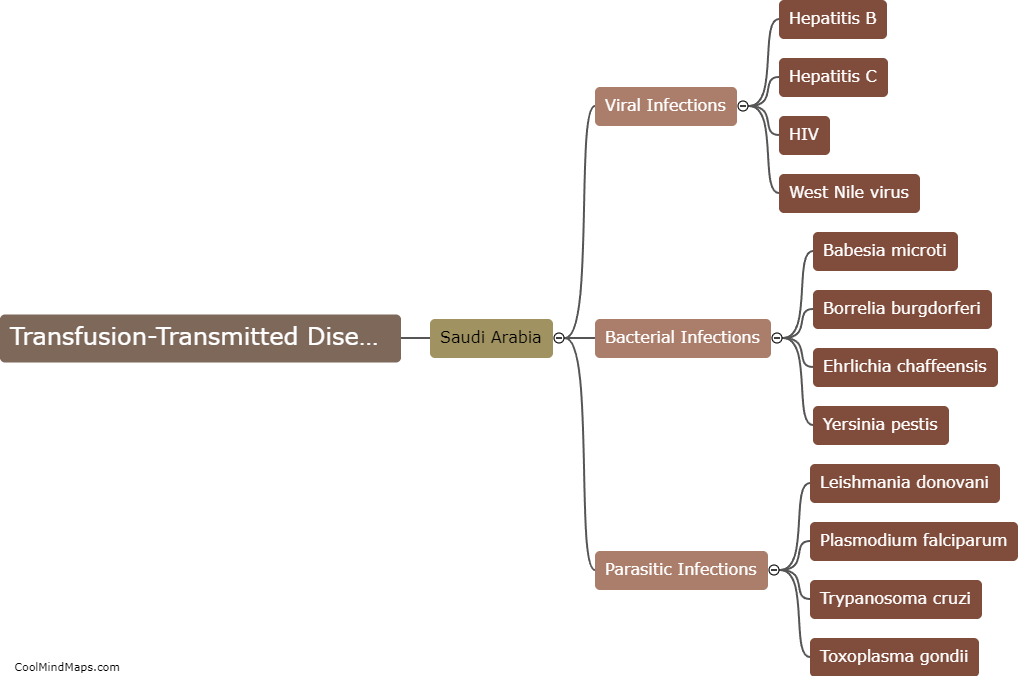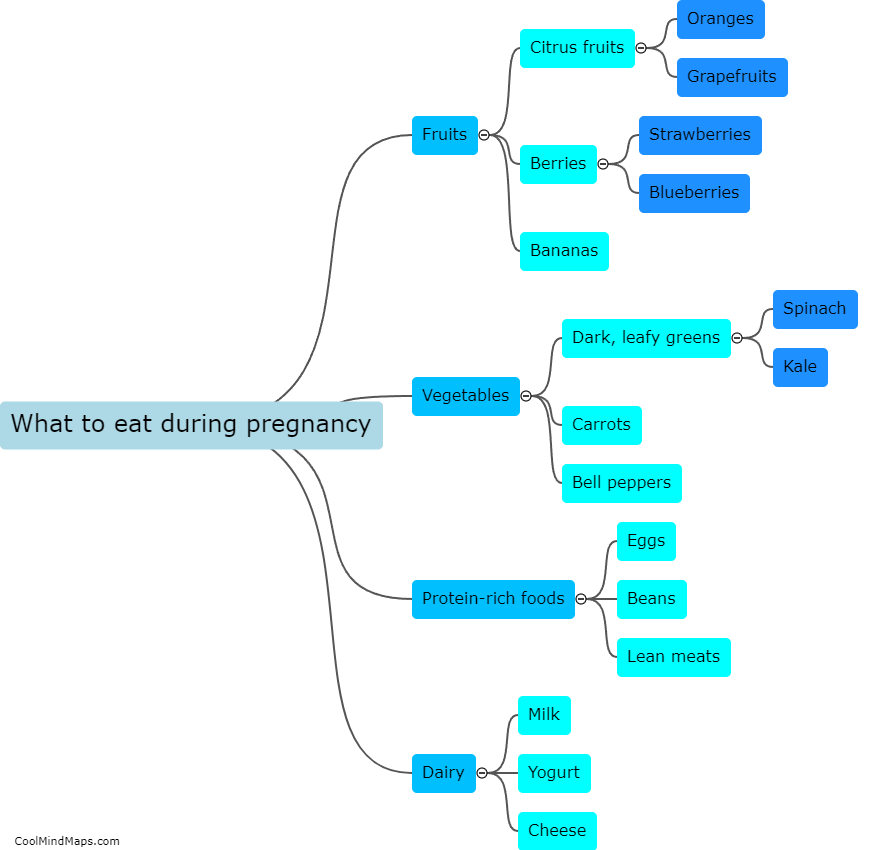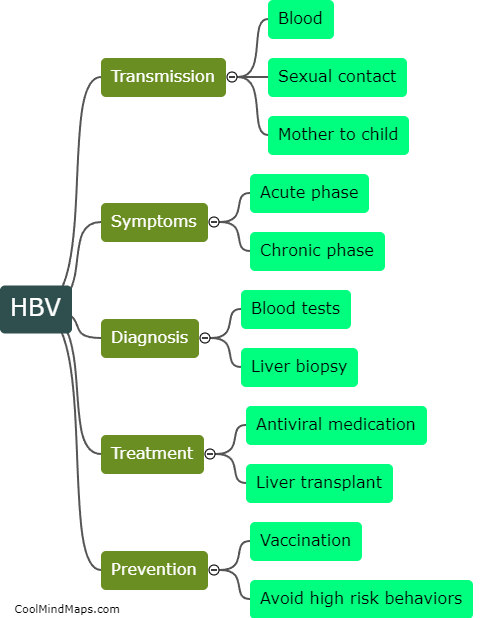What are transfusion reactions?
Transfusion reactions refer to the adverse reactions that can occur when a patient receives a blood transfusion. These reactions can occur due to incompatibility between the transfused blood and the patient's blood, which can lead to a range of symptoms, including fevers, chills, nausea, shortness of breath, and in severe cases, life-threatening reactions such as anaphylaxis. Transfusion reactions can have several causes, including human error, incorrect blood typing, or pre-existing antibodies that react with transfused blood components. Proper patient identification, blood typing, and cross-matching procedures are critical to prevent transfusion reactions.

This mind map was published on 25 June 2023 and has been viewed 90 times.











